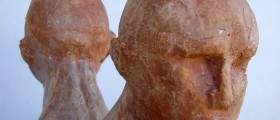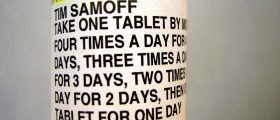
Testosterone (or sometimes also called just T) is a male sexual hormone and anabolic steroid. This steroid hormone is mainly synthesized in the testicles of men, but also in ovaries (in women). Another source of testosterone, although in small amounts are adrenal glands. Male body produces about 10 times more testosterone than the female, but women are more sensitive, even to small quantities of testosterone in their bodies. As the male sexual hormone, testosterone is responsible for the secondary sexual male characteristics: facial and chest hair growth, strong muscles, strong sexual drive and deep voice.
Testosterone Injections
If a man suffers from a low level of testosterone, he might be experiencing depression, lack of energy, muscle reduction and weight loss and also decreased libido, which is condition treatable by hormone injections.
T replacement injections must be approved by your doctor, since they are not suitable for every patient. It should be used only if all other treatment options have failed. They are usually made of testosterone esters, suspended in some oil. In most cases these injections are given to the buttocks, from where testosterone goes to the bloodstream. Parenteral (injections) use of testosterone avoids the liver metabolism and assures the appropriate quantities of testosterone for the patient.
T injections usually shut down the production of natural body testosterone, lead to testicular atrophy and cause many other side effects.
Testosterone Adverse Effects
As said, testosterone injections have some unwanted effects. People given T may experience loss of appetite, nausea, increased thirst or weight, headaches, confusion and memory problems. Some patients may suffer from muscle weakness, painful sensations in the bones, yellowing of the skin and/or eyes (jaundice). Reported side effects also included some increased libido and erections.
Men using T injections could also suffer from acne, tingling, numbness, gynecomastia (breast enlargement) or breast swelling. Reactions on the injections spot are also the possibility, and some patients have complained about discomfort, pain and swelling on the site.
Women may also be prescribed some testosterone injections, especially if they were suffering from metastasized breast cancer. These women may experience: hair loss and balding, menstrual changes, increased clitoris, libido problems (both increase and decrease) and also some unexpected hair growth on the chest or on the chin. These signs and symptoms should be immediately reported to the doctor, since they could beirreversible.
Caution Measures
Testosterone is known to interact with some other medications. Inform your doctor about all drugs, OTC preparations and remedies you have been taking, in order to avoid drug interactions. Some of the medications that might react with T are: blood thinners, anti-diabetic medications, Prednisone and even some vitaminsupplements.
Men with breast or prostate cancers should not be using T injections.
Testosterone belongs to the X group of medications (according to the FDA). It means that it has been proven to cause birth defects to unborn children and that testosterone should not be uses by pregnant or women who want to become pregnant.

















Your thoughts on this
Loading...